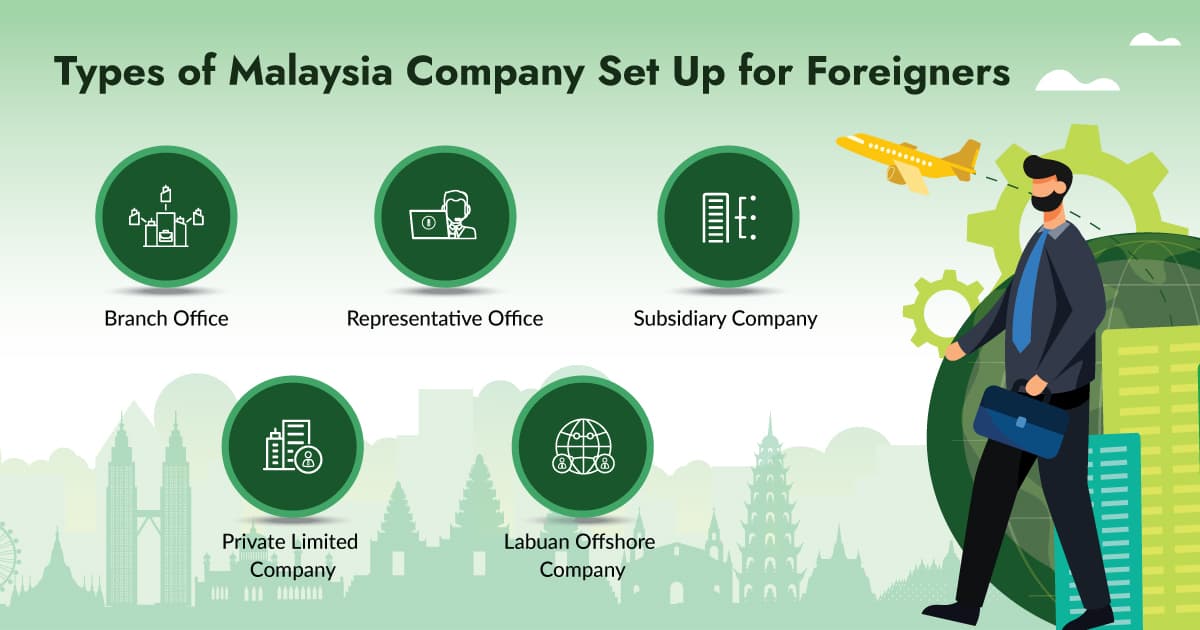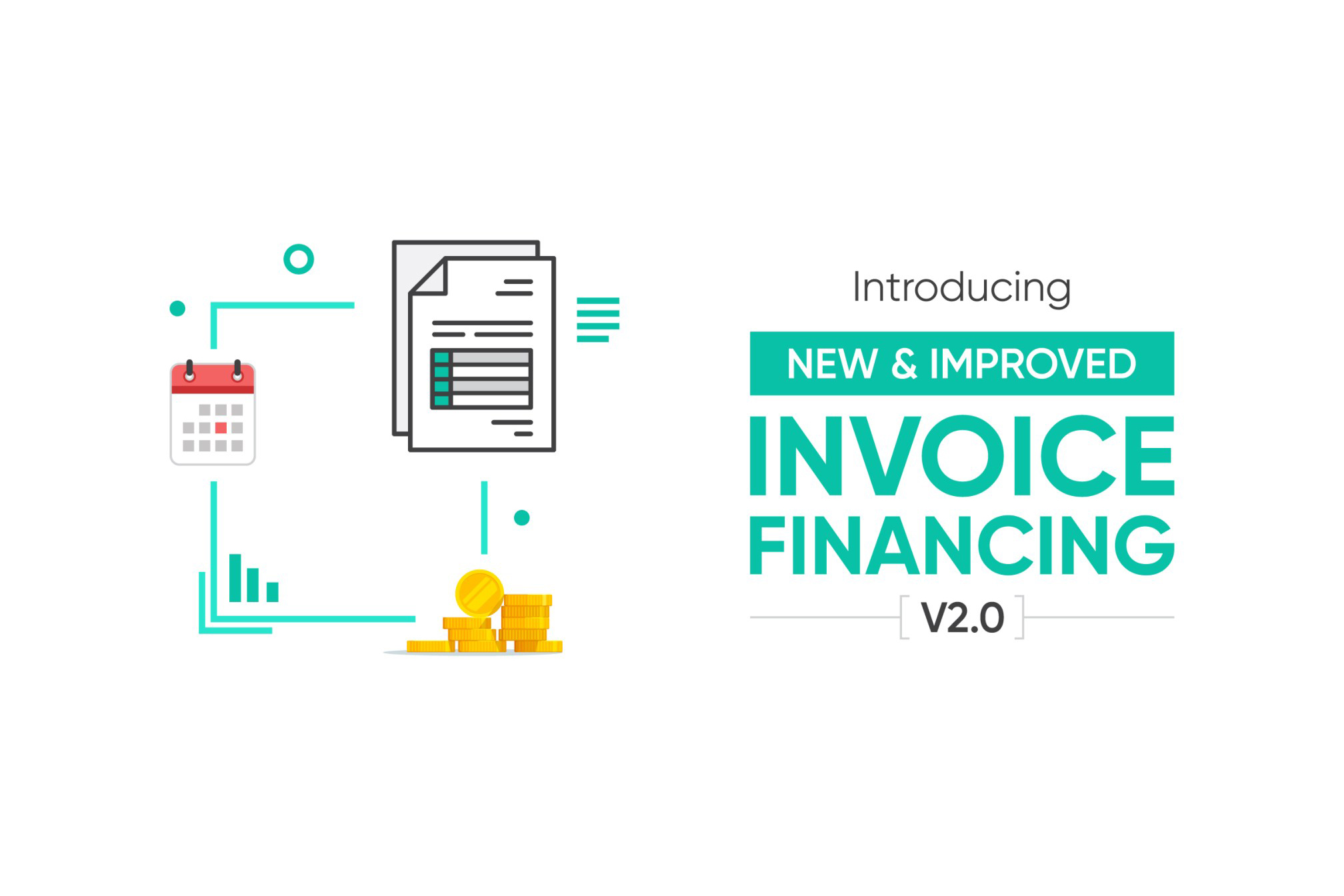Malaysia, a vibrant and rapidly developing country in Southeast Asia, offers diverse opportunities for aspiring entrepreneurs and investors. To embark on a successful business venture in Malaysia, it is crucial to understand the various types of business entities available for registration. Each business entity type has distinct advantages, legal obligations, and implications on taxation, liability, and operational flexibility. This article provides a comprehensive overview of Malaysia's seven primary types of business entities. From sole proprietorships to limited liability partnerships and private limited companies, we will delve into each entity type's characteristics, benefits, and considerations. Whether you are a local entrepreneur or a foreign investor exploring the Malaysian market, this guide will be invaluable to help you navigate the intricate landscape of business establishment in Malaysia. By gaining insights into the different business entity options, you will be better equipped to make informed decisions regarding the structure that aligns with your business objectives and provides the legal framework for sustainable growth. Let's explore the fascinating world of 7 business entities in Malaysia together.
1. Sole Proprietorship
Characteristics: Malaysia's most straightforward and common business entity is a sole proprietorship. It is owned and operated by a single individual who assumes complete control and responsibility for the business. This individual is the sole owner of all assets and liabilities of the business.
Advantages:
- Easy setup: Establishing a sole proprietorship in Malaysia is relatively straightforward, with minimal legal formalities and low registration costs.
- Complete control: As the sole proprietor, you have complete autonomy over decision-making and business operations.
- Tax advantages: Sole proprietors are not subject to corporate tax rates. Instead, business income is taxed at the individual's personal income tax rate, which may be lower.
- Flexibility: Sole proprietorships offer greater flexibility in business management, allowing quick adaptations to changing market conditions.
Disadvantages:
- Unlimited liability: The owner is personally liable for all debts and obligations of the business. Personal assets can be used to settle business liabilities in case of financial difficulties.
- Limited resources: Sole proprietors often face challenges raising capital, relying primarily on personal savings or loans.
- Limited growth potential: The business's growth may be restricted due to limited resources and the sole proprietor's capacity to handle all aspects of the business.
- Lack of continuity: Sole proprietorships are not separate legal entities. Therefore, the business does not survive the death or incapacity of the owner, potentially leading to the cessation of operations.
Additional Information: Sole proprietorships do not require a separate business name but may use a trade name or the owner's name. While not mandatory, it is advisable to register the business with the Companies Commission of Malaysia (SSM) to benefit from legal recognition and access to certain privileges and protections. Despite its limitations, a sole proprietorship can be an attractive option for small-scale businesses or individuals testing the waters in the Malaysian market. It offers simplicity, flexibility, and the ability to control business decisions fully. However, it is essential to carefully evaluate the risks and consider alternative business structures as the business grows or expands.
:max_bytes(150000):strip_icc()/soleproprietorship-Final-578020d8a89e486180a235fe9e76c9e9.jpg)
2. Partnership
Characteristics: A partnership is a business entity formed by two or more individuals who agree to share profits, losses, and managerial responsibilities. Partnerships in Malaysia are governed by the Partnership Act 1961 and can be either a general partnership or a limited liability partnership (LLP).
Advantages:
- Shared resources and expertise: Partnerships allow for the pooling of financial resources, skills, and knowledge, enabling a broader range of expertise and potential for business growth.
- Shared decision-making: Partners can collectively contribute to decision-making processes, providing diverse perspectives and reducing the burden of sole decision-making.
- Tax benefits: Partnerships are not subject to corporate tax rates. Instead, business income is distributed among partners and taxed at their individual income tax rates.
- Flexibility in agreement: Partnerships can be established through a partnership agreement, allowing partners to define their roles, profit-sharing arrangements, and other terms as mutually agreed upon.
Disadvantages:
- Unlimited liability: Similar to sole proprietorships, partners in a general partnership have unlimited personal liability for the business's debts and obligations.
- Shared responsibility and risks: Each partner is bound by the actions and decisions of other partners, which can lead to conflicts, disagreements, and shared liability.
- Limited life span: Partnerships may dissolve upon the withdrawal, death, or bankruptcy of a partner, requiring careful consideration of succession planning and continuity measures.
- Difficulty in raising capital: Partnerships may face challenges in accessing substantial capital, as they rely on partners' contributions and their assets.
Additional Information: Limited liability partnerships (LLPs) offer partners the advantage of limited personal liability, meaning their assets are protected from the debts and obligations of the partnership. LLPs must register with the Companies Commission of Malaysia (SSM) and adhere to specific reporting and compliance obligations.
Partnerships can be an ideal choice for businesses that benefit from multiple individuals' collective expertise, resources, and risk-sharing capabilities. However, it is essential to establish an explicit partnership agreement that outlines rights, responsibilities, profit-sharing arrangements, and dispute resolution mechanisms to ensure smooth operation and mitigate potential conflicts.
:max_bytes(150000):strip_icc()/Partnership-V3-78bb6f640fa34c828167ce2328b839d7.jpg)
3. Private Limited Company
Characteristics: A private limited company, often denoted as "Sdn Bhd" (Sendirian Berhad) in Malaysia, is a separate legal entity formed by shareholders. It is regulated by the Companies Act 2016 and provides limited liability protection to its shareholders. A private limited company can have a minimum of one and a maximum of 50 shareholders.
Advantages:
- Limited liability: Shareholders' liability is limited to their investment in the company. Personal assets are generally protected from business debts and liabilities.
- Separate legal entity: A private limited company has a distinct legal identity, providing stability, continuity, and the potential for long-term growth.
- Access to funding: Compared to sole proprietorships and partnerships, private limited companies have better access to external funding sources, such as bank loans, investments, and grants.
- Professional image: Having "Sdn Bhd" in the company name enhances credibility, trust, and market perception, making it easier to attract customers, suppliers, and business partners.
Disadvantages:
- Compliance requirements: Private limited companies have more stringent reporting, disclosure, and compliance obligations, including filing annual financial statements and conducting annual general meetings.
- Complex setup and administration: Establishing a private limited company involves more formalities, such as company incorporation, appointing directors and company secretaries, and maintaining statutory records.
- Restricted ownership transfer: The transfer of shares in a private limited company may be subject to certain restrictions, as outlined in the company's articles of association.
- Higher tax obligations: Private limited companies are subject to corporate tax rates, which may be higher than personal income tax rates applicable to sole proprietorships or partnerships.
Additional Information: Private limited companies require a minimum paid-up capital, the appointment of at least one director ordinarily residing in Malaysia, and a company secretary. They must also submit annual returns and comply with regulations regarding corporate governance, accounting standards, and other legal requirements.
Private limited companies offer significant benefits regarding limited liability, access to funding, and a professional image. They are particularly suitable for businesses with growth aspirations, long-term sustainability goals, and the need for investment capital. However, the administrative complexities and compliance obligations should be carefully considered when choosing this business entity type.
:max_bytes(150000):strip_icc()/privatecompany_V2-e571ead148b643c7906455c312fb6d25.jpg)
4. Limited Liability Partnership (LLP)
Characteristics: A Limited Liability Partnership (LLP) is a hybrid business entity combining a partnership's features and a private limited company. It provides its partners with limited liability protection while allowing flexibility in the internal structure and management of the business. LLPs in Malaysia are governed by the Limited Liability Partnerships Act 2012.
Advantages:
- Limited liability: LLP partners enjoy limited personal liability, protecting their assets from the debts and liabilities of the LLP. Each partner is responsible only for their actions and not liable for the actions of other partners.
- Flexibility in management: LLPs offer flexibility in the internal structure, management, and decision-making processes. Partners can define their roles, responsibilities, profit-sharing arrangements, and other terms through a partnership agreement.
- Separate legal entity: LLPs have a distinct legal identity, enabling continuity and perpetual existence regardless of partner changes.
- Tax benefits: LLPs are not subject to corporate tax rates. Instead, partners report their share of profits or losses on their income tax returns, potentially resulting in lower tax liabilities.
Disadvantages:
- Compliance requirements: LLPs have specific compliance obligations, including annual returns filing and maintaining proper accounting records.
- Limited access to funding: Compared to private limited companies, LLPs may face challenges in raising capital from external sources, as potential investors or lenders may perceive the partnership structure and limited liability as riskier.
- Lack of public perception: LLPs may not enjoy the same credibility and market perception as private limited companies, especially when dealing with larger clients, government agencies, or international business partners.
- Partnership disputes: Disputes among partners, disagreements over decision-making, or conflicts regarding profit sharing can impact the stability and harmony of the LLP.
Additional Information: LLPs must be registered with the Companies Commission of Malaysia (SSM) and have at least two partners. They must appoint at least one partner who ordinarily resides in Malaysia and maintain proper accounting records. LLPs provide a middle ground between partnerships and private limited companies, offering limited liability protection and flexibility in management. They are well-suited for professional practices, such as accounting firms, law firms, or consultancy services, where partners desire limited personal liability while maintaining control over the business. However, the limited access to funding and potential perception challenges should be carefully evaluated based on the specific needs and goals of the business.
:max_bytes(150000):strip_icc()/Termslllc_sketch_final-1e8a46fa0eff4911be23ac38fc08636e.png)
5. Public Limited Company
Characteristics: A Public Limited Company, commonly referred to as a "Berhad" (Bhd) in Malaysia, is a business entity offering public shares. It is regulated by the Companies Act 2016 and is subject to stricter regulatory requirements and corporate governance standards. Public Limited Companies in Malaysia can list their shares on the stock exchange.
Advantages:
- Access to capital: Public Limited Companies can raise substantial capital by issuing shares to the public or through the stock market. This provides opportunities for expansion, investment, and funding of large-scale projects.
- Credibility and market perception: Public Limited Companies enjoy higher credibility and market perception due to transparent operations, regulatory standards compliance, and a broader shareholder base.
- Transferability of shares: Public Limited Company shares can be easily bought, sold, and transferred, providing liquidity and potential for shareholder diversification.
- Growth opportunities: Being publicly traded opens doors to partnerships, mergers, acquisitions, and collaborations with other businesses, facilitating growth and market expansion.
Disadvantages:
- Increased compliance obligations: Public Limited Companies face more stringent regulatory requirements and are subject to additional compliance obligations, such as timely financial reporting, disclosure of information, and transparency in corporate governance practices.
- Loss of control: Public Limited Companies may face dilution of control as shares are available for purchase by the public. Shareholders have voting rights and can influence critical business decisions.
- Higher costs: Going public and maintaining compliance with regulatory standards can be expensive, including listing fees, legal fees, ongoing reporting expenses, and investor relations activities.
- Market volatility and scrutiny: Public Limited Companies are subject to market fluctuations, investor expectations, and public scrutiny, which can impact stock prices, reputation, and decision-making.
Additional Information: To become a Public Limited Company in Malaysia, specific requirements must be met, such as a minimum issued capital, a minimum number of shareholders, and compliance with listing rules if the company decides to list its shares on the stock exchange. Public Limited Companies are suitable for businesses with substantial capital requirements, ambitious growth plans, and a desire to access public funding and attract a broader investor base. However, the increased compliance obligations, loss of control, and exposure to market volatility should be carefully evaluated before transitioning to a public entity.

6. Company Limited by Guarantee (CLBG)
Characteristics: A Company Limited by Guarantee (CLBG) is a non-profit organization commonly used for charitable, social, or community-based purposes in Malaysia. It is governed by the Companies Act 2016 and is not designed for profit distribution to its members. Instead, the members guarantee to contribute a specified amount towards the company's liabilities in the event of winding up.
Advantages:
- Limited liability: Members' liability is limited to the amount they guarantee to contribute, protecting personal assets.
- Non-profit focus: CLBGs are well-suited for organizations with social or charitable objectives, allowing them to focus on their mission without pressure to generate profits for shareholders.
- Credibility and trust: Registration as a CLBG enhances credibility and public trust, making it easier to attract donors, sponsors, and volunteers.
- Perpetual existence: CLBGs enjoy perpetual succession, ensuring continuity and long-term sustainability of the organization's activities.
Disadvantages:
- Restricted activities: CLBGs have limited profit distribution and may face restrictions on certain commercial activities.
- Compliance obligations: CLBGs must comply with reporting, governance, and accounting standards, similar to other types of companies in Malaysia.
- Limited access to funding: CLBGs often rely on grants, donations, and fundraising efforts, which may pose challenges in raising substantial capital for projects or initiatives.
Additional Information: CLBGs must have at least two members, a memorandum, and articles of association. They must register with the Companies Commission of Malaysia (SSM) and adhere to reporting requirements, including annual financial statements and filing of annual returns. CLBGs are an ideal choice for organizations with a non-profit focus, such as charities, social enterprises, or community groups. While they provide limited liability protection and a framework for sustainable operations, the restricted profit distribution and potential limitations on certain activities should be considered when establishing a CLBG.

7. Foreign Company
Characteristics: A foreign company is incorporated outside of Malaysia and carries out business activities within the country. In Malaysia, a foreign company is subject to the provisions of the Companies Act 2016 and must comply with specific requirements and regulations.
Advantages:
- Market expansion: Establishing a presence in Malaysia allows foreign companies to tap into the country's growing economy, gain access to new markets, and reach a broader customer base.
- Investment opportunities: Malaysia offers various incentives, tax benefits, and government support to attract foreign investment, creating opportunities for foreign companies to grow and expand their operations.
- Global business network: A presence in Malaysia enables foreign companies to connect with local businesses, forge partnerships, and participate in the regional and international trade network.
Disadvantages:
- Compliance and regulatory requirements: Foreign companies must adhere to the regulations and legal obligations set forth by Malaysian authorities, including registration, licensing, reporting, and tax requirements.
- Cultural and market challenges: Operating in a foreign market may involve cultural differences, language barriers, and adapting to local consumer preferences and business practices.
- Competitive landscape: Foreign companies face competition from local businesses and established players in the Malaysian market, requiring effective marketing strategies and differentiation to gain a competitive edge.
Additional Information: Foreign companies must register with the Companies Commission of Malaysia (SSM) as foreign company and appoint a local agent or representative. They are required to file annual financial statements, comply with local taxation regulations, and maintain proper accounting records.
Entering the Malaysian market as a foreign company presents opportunities for growth and expansion. However, understanding the local market dynamics, complying with regulatory requirements, and tailoring business strategies to suit the Malaysian context is essential for success.

In conclusion, Malaysia offers a diverse range of business entity options for both local and foreign entrepreneurs. Each type of business entity has its characteristics, advantages, and disadvantages. From sole proprietorship and partnership to private limited company, limited liability partnership, a company limited by guarantee, and a foreign company, businesses can choose the entity that aligns with their goals, needs, and legal obligations. Understanding each entity's unique features and implications is crucial in making informed decisions and ensuring compliance with Malaysian laws and regulations. By selecting the most suitable business entity, entrepreneurs can set the foundation for their success and effectively navigate Malaysia's business landscape.





